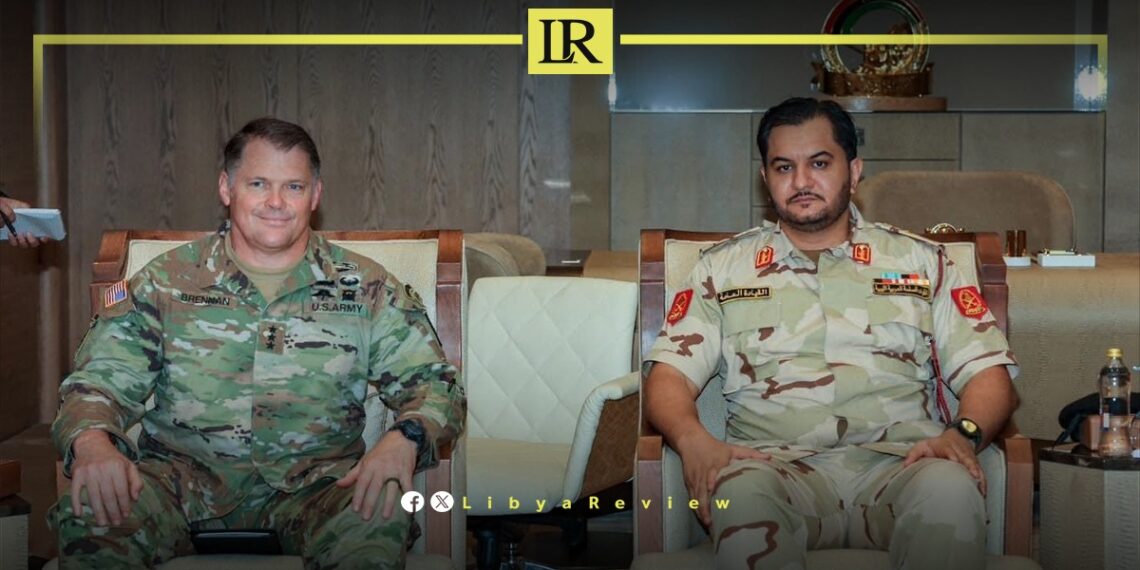On Thursday, Major General Saddam Haftar, Chief of Staff of the Libyan National Army (LNA)’s Ground Forces, held a meeting with Lieutenant General John Brennan, Deputy Commander of U.S. Africa Command (AFRICOM), to discuss joint efforts in counter-terrorism and training initiatives.
Saddam Haftar welcomed Lt. Gen. Brennan, Chargé d’Affaires of the US Embassy in Libya, Jeremy Berndt, in Libya, Rear Admiral Ronald Foy, Commander of Special Operations Command Africa (SOCAFRICA), and their delegation at the Ground Forces Command headquarters in Benghazi. The meeting included directors from various departments of the Ground Forces Command.
In a statement, the LNA General Command’s Military Information Division reported that Haftar and the U.S. delegation explored ways to enhance cooperation between the LNA and the United States in combating terrorism. They also discussed implementing joint training programs to improve the Libyan Army’s capabilities in border security and reducing illegal migration.
This meeting followed the U.S. military delegation’s visit to Tripoli, where they met with interim Prime Minister and Defense Minister Abdulhamid Dbaiba, and General Mohamed Haddad, Chief of Staff of the Government of National Unity (GNU). These discussions also focused on military cooperation in counter-terrorism, training programs, border security, and migration control.
Libya has faced significant instability since the 2011 uprising that led to the fall of Muammar Gaddafi. The country remains divided between rival administrations, with the LNA controlling the east and parts of the south, and the GNU governing the west, including the capital, Tripoli. This division has created a complex and volatile security environment, with various militant groups exploiting the power vacuum.
The LNA, led by Khalifa Haftar, has been a key player in combating extremist groups in eastern Libya, including ISIS and Al-Qaeda affiliates. The LNA’s efforts have been supported by international partners, including the United States, which has conducted airstrikes against terrorist targets in Libya and provided training and assistance to Libyan security forces.
AFRICOM’s involvement in Libya is part of a broader U.S. strategy to enhance regional stability and combat terrorism in North Africa. By collaborating with Libyan forces, AFRICOM aims to build local capacity to address security threats and prevent the spread of extremism.


